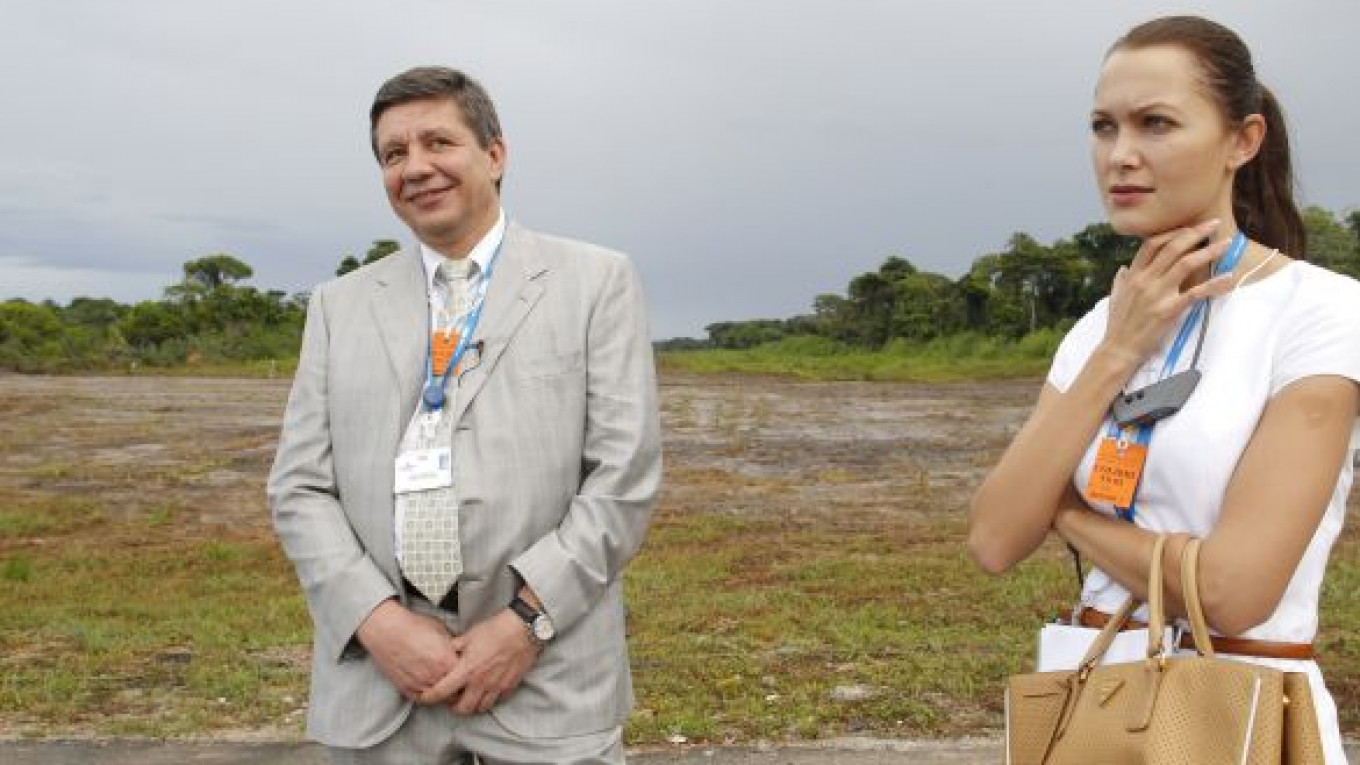Several hundred Russians watched with satisfaction — and relief ?€” as a Soyuz rocket successfully blasted off from French Guiana bearing the first two satellites in Europe's Galileo global positioning system.
The rocket lifted off at 7:30 a.m. Friday from the base near Kourou, French Guiana, on the northeast coast of South America, and the Galileo satellites separated four hours later.?
"Soyuz is only the beginning of a cooperation that will go much further," Deputy Prime Minister Sergei Ivanov said.
In the days preceding the launch, a 400-member Russian delegation swamped the limited hotel facilities of Kourou, which has a population of 25,000.
They came to attend the first launch of the legendary Soyuz rocket from a spaceport outside the former Soviet Union.
The launch ?€” the 1,777th for the Soyuz ?€” had to be delayed Thursday after a leaky valve was detected in the rocket's fueling system. A team of 200 Russian technicians and engineers worked around the clock to ensure that the rocket took off successfully 24 hours later.
Once fully operational later this decade, the Galileo system aims to give Europeans autonomy from the U.S. government-controlled Global Positioning System. Russia says it recently completed its own similar system, Glonass.
Rather than build a new rocket from scratch, Europe decided to build a 467 million euro ($650 million) launch pad for Soyuz in the French Guiana base where it already launches its Ariane rocket family.
The Federal Space Agency, whose chief, Vladimir Popovkin, watched the launch, will receive tens of millions of euros for each rocket that is built and shipped from its Samara space center. "Soyuz will give us a complete range of launchers," said Jean-Yves Le Gall, Arianespace chief executive.
Arianespace plans to launch at least two Soyuz rockets a year from now on as it places 30 satellites in orbit.?
(Reuters, MT)


